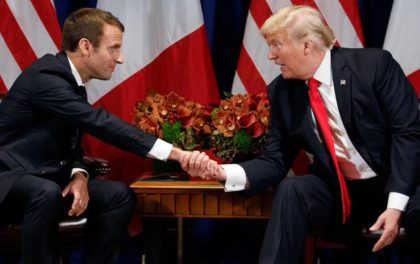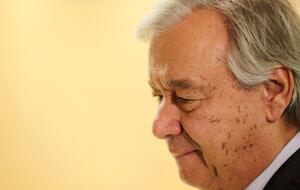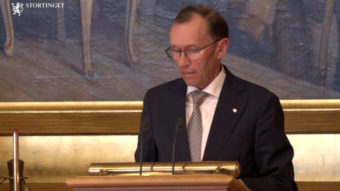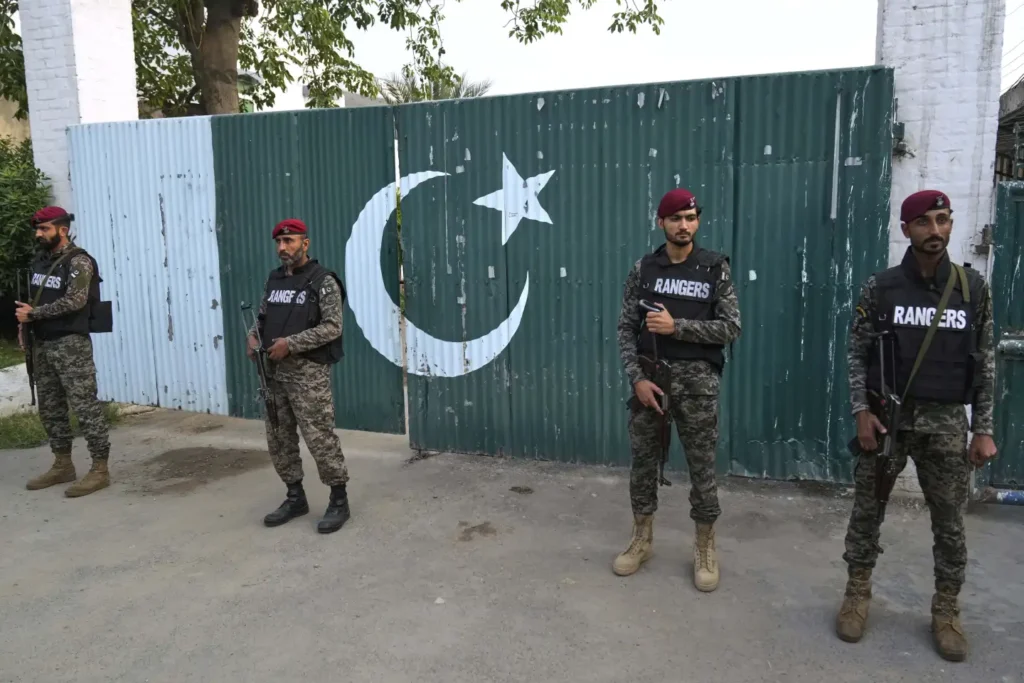
UNITED NATIONS (AP) — U.S. President Donald Trump and French leader Emmanuel Macron are expected to take the spotlight at the annual gathering of world leaders at the United Nations — but it’s the tough global challenges from the nuclear threat in North Korea and the plight of Myanmar’s minority Muslims to the spread of terrorism and the impact of climate change that will dominate discussions.
President Donald Trump shakes hands(picture) with French President Emmanuel Macron during a meeting at the Palace Hotel during the United Nations General Assembly, Monday, Sept. 18, 2017, in New York.The six-day meeting opens Tuesday morning with a state-of-the-world speech by Secretary-General Antonio Guterres. He is making his debut at the General Assembly ministerial session along with the American and French leaders.
Set Somber Tone
French Foreign Minister Jean-Yves Le Drian set a somber tone for the meeting, telling reporters Monday that dissension and conflict are at their highest levels since the Cold War and that cooperation among nations has become more difficult in a world that is more interdependent than ever. What is worse, Le Drian said, is that some countries are increasingly questioning the role of working together, «and with a temptation of withdrawal out of fear or selfishness.» He gave no examples but appeared to be pointing to growing nationalism in the United States and some European countries.
Many world leaders, concerned about America’s priorities and role in the world, will get their first chance to hear and meet Trump. He is scheduled to speak after Guterres and Brazil’s president, who for more than 35 years has been the first leader to address the 193-member General Assembly.Guterres has called North Korea «the most dangerous crisis that we face today,» and while Trump and Macron will grab headlines it’s the next steps in dealing with Pyongyang leader Kim Jong Un’s relentless pursuit of nuclear weapons that will be watched most closely.
Attention on Myanmar
Not far behind on the list of issues needing urgent international attention is the plight of Myanmar’s Rohingya Muslims, victims of what Guterres calls a campaign of «ethnic cleansing» that has driven nearly 400,000 to flee into Bangladesh over the past three weeks.
The secretary-general said a third major challenge is climate change. On Monday night, the eve of the ministerial meeting, the second Category 5 hurricane in a month hit the Caribbean, with the small island of Dominica the first landfall for Hurricane Maria. Earlier in the day, Guterres and top government officials from several countries devastated by the other Category 5 storm, Hurricane Irma, addressed a hastily called U.N. meeting and appealed for help to rebuild following that storm’s destruction.
Guterres called this year’s hurricane season «the most violent on record» and warned that extreme weather linked to climate change is having an impact all over the world, «including floods in southern Asia and landslides and droughts in Africa.»




